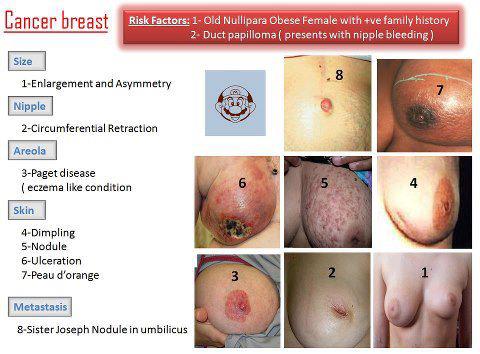Whose Offices Are Germier? Men vs. Women
If you're reading this at work, brace yourself. A new study shows that typical offices have hundreds of types of bacteria in them, and men's offices have the most.
Researchers report finding more than 500 different types of bacteria on common surfaces in offices in three major U.S. cities. And, perhaps less surprisingly to some people, they found that men's offices are more contaminated than women's.
"Humans are spending an increasing amount of time indoors, yet we know little about the diversity of bacteria and viruses where we live, work, and play," says lead researcher Scott Kelley, PhD.
The San Diego State University biologist and his team swabbed five common office surfaces -- chairs, phones, desks, computer mice, and keyboards -- in 90 different offices, 30 each in San Francisco, New York, and Tucson.
The research team, which was partially funded by the Clorox Corporation, found bacteria on nearly every surface they tested. Most of it came from the office workers themselves. Coughing and sneezing accounted for a good deal of the bacteria, as did shedding from the skin. However, a substantial amount came from deeper inside the body.
"We also found a surprising number of bacterial genera associated with the human digestive tract," the researchers write in the study, which appears today in the online journal PLoS ONE.
If all this sounds rather alarming -- or simply gross -- the researchers point out that there is likely little cause for concern for the vast majority of people who spend eight hours a day in an office: "[M]ost of the human-associated bacteria we found ... would only be a potential problem with severely immune compromised individuals."
On top of that, the researchers say that the dry, cool atmospheres of most offices do not lend themselves to bacterial growth.
Men Are Greater Source of Bacteria Than Women
As for the main suppliers of the bacteria, Kelley and colleagues say that men are responsible for a higher germ count than their female co-workers. Part of that may be explained by the fact that men are, in general, larger than women, which means they have more surface skin to provide a breeding ground for bacteria. However, the researchers cite previous scientific literature to offer another possible explanation.
"Men are known to wash their hands and brush their teeth less frequently than women, and are commonly perceived to have a more slovenly nature," the researchers write.
And the Germiest Spots Are ...
Office co-workers are not the only source of bacteria. Dirt is another main supplier of contamination. And the most common surfaces on which bacteria were found? Telephones and chairs.
The researchers also found that the San Francisco offices they tested were less contaminated than those in New York and Tucson. They were not sure why this should be the case.
The researchers hope that these types of bacterial profiles of office spaces will help public health officials get to the bottom of disease outbreaks that can occur in office settings.
By: Matt McMillen
Reviewed by: Michael W. Smith, MD
Researchers report finding more than 500 different types of bacteria on common surfaces in offices in three major U.S. cities. And, perhaps less surprisingly to some people, they found that men's offices are more contaminated than women's.
"Humans are spending an increasing amount of time indoors, yet we know little about the diversity of bacteria and viruses where we live, work, and play," says lead researcher Scott Kelley, PhD.
The San Diego State University biologist and his team swabbed five common office surfaces -- chairs, phones, desks, computer mice, and keyboards -- in 90 different offices, 30 each in San Francisco, New York, and Tucson.
The research team, which was partially funded by the Clorox Corporation, found bacteria on nearly every surface they tested. Most of it came from the office workers themselves. Coughing and sneezing accounted for a good deal of the bacteria, as did shedding from the skin. However, a substantial amount came from deeper inside the body.
"We also found a surprising number of bacterial genera associated with the human digestive tract," the researchers write in the study, which appears today in the online journal PLoS ONE.
If all this sounds rather alarming -- or simply gross -- the researchers point out that there is likely little cause for concern for the vast majority of people who spend eight hours a day in an office: "[M]ost of the human-associated bacteria we found ... would only be a potential problem with severely immune compromised individuals."
On top of that, the researchers say that the dry, cool atmospheres of most offices do not lend themselves to bacterial growth.
Men Are Greater Source of Bacteria Than Women
As for the main suppliers of the bacteria, Kelley and colleagues say that men are responsible for a higher germ count than their female co-workers. Part of that may be explained by the fact that men are, in general, larger than women, which means they have more surface skin to provide a breeding ground for bacteria. However, the researchers cite previous scientific literature to offer another possible explanation.
"Men are known to wash their hands and brush their teeth less frequently than women, and are commonly perceived to have a more slovenly nature," the researchers write.
And the Germiest Spots Are ...
Office co-workers are not the only source of bacteria. Dirt is another main supplier of contamination. And the most common surfaces on which bacteria were found? Telephones and chairs.
The researchers also found that the San Francisco offices they tested were less contaminated than those in New York and Tucson. They were not sure why this should be the case.
The researchers hope that these types of bacterial profiles of office spaces will help public health officials get to the bottom of disease outbreaks that can occur in office settings.
By: Matt McMillen
Reviewed by: Michael W. Smith, MD




now that's something. we could learn from this study to strive harder to clean our working space.
ReplyDeleteI don't mind too much if they say its no cause for concern. I mean its probably decent to help building up an immune system anyway I suppose. Men lose this round again, pretty interesting study.
ReplyDeleteinteresting findings
ReplyDeleteeveryone needs to keep it clean and bacteria free
O__O yuck. and here i am sure that in my 'typical surroundings / hospital, geriatric homes and so on' we also have a lot of bacterias even though we use desinfection things too often...
ReplyDeleteyuck, I'd never use an office telephon, nor public toilet seats!
ReplyDeleteInformative !
ReplyDeleteThanks for sharing.
Only I know how I work a lot in he kitchen I wash my hands every moment (really) when you cook you feel so responsable (that I think) and my daughter make the same:)
ReplyDeleteI sacred public places like buses and subways:( but when I arrive home he first is washed my hands!
interesting! Although some men are quite neat and clean.
ReplyDeletethe more important question is, why do most people assume that all germs have a negative effect on their health? there are studies that are actually suggesting that germs play a helpful role in the development of the body's inflammatory systems, which plays a crucial role in the immune system's fight against infection.
ReplyDeleteI bet the area with the most bacteria in my place is my keyboard since I use it more than my phone.
ReplyDeletei'm gonna say womens, cause they have delicious cooties.
ReplyDeleteWe, men, should be cleaner. Interesting facts, I learned a lot from this article.
ReplyDeleteA little grime is good it builds a strong immune system
ReplyDeletepeople are becoming germaphobes when we shouldn't be, we'll never eliminated them and it would be bad for us to do so if we could.
ReplyDeletefollow
ReplyDeleteYea, I can understand where those germs come from, when I look at my table!
ReplyDelete